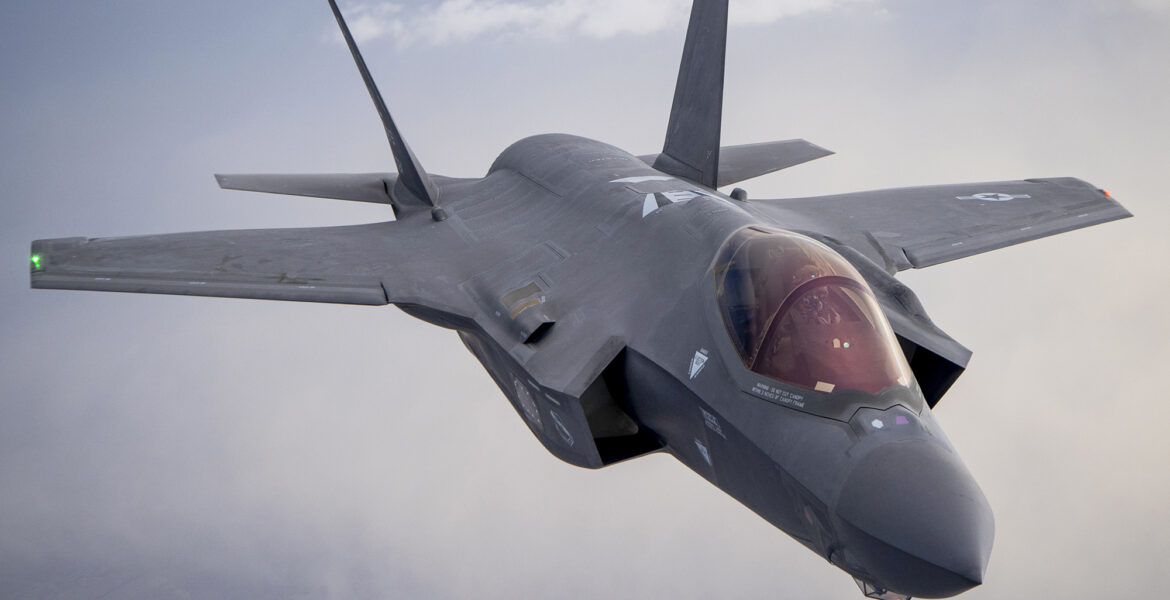Greece's acquisition of F-35 fighter jets, a significant boost to its deterrence capabilities and marking its entry into the era of fifth-generation warplanes, is imminent.
The notification for the sale of F-35s to Greece was expected to reach Congress by Saturday's dawn (Monday at the latest), initiating a process that, along with a letter from Secretary of State Antony Blinken to Prime Minister Kyriakos Mitsotakis pledging security and defense cooperation, will deepen the strategic relationship between the two countries.
Crucially, to persuade Congress to approve the F-16 package for Turkey simultaneously, the State Department will guarantee that the F-16s will not be used against allies.
The Greek government and Prime Minister Mitsotakis are fully aware of the ongoing negotiations, as the entire package was discussed during US Secretary of State Antony Blinken's visit to Chania, where Foreign Minister Nikos Dendias and Deputy Foreign Minister Alexandra Papadopoulou, responsible for liaising with the Americans, were also present.
These developments were "unlocked" by Turkey's approval of Sweden's membership in NATO after 20 months of haggling and brinkmanship that stretched even the Americans' patience. The Americans had to resort to the threat that if Sweden's accession was not immediately approved, the State Department would propose selling F-35s to Greece while putting Turkey's request for 40 new F-16s and the upgrade of 80 of its existing F-16s on hold.
By Friday evening (Washington time), Washington awaited the document certifying Turkey's ratification law for Sweden's accession, signed by Erdogan on Thursday night to ensure its publication in the Official Gazette, as the American side has no trust in the Turkish leader. Only after receiving the official Turkish document for Sweden's accession would they give the green light to begin the process of approving the sale of F-35s to Greece and F-16s to Turkey.
The Americans had warned Ankara that if it continued its stalling tactics, they would proceed only with the Greece deal, with the consequences for the Turkish Air Force's competitiveness and the shift in the Aegean air balance of power in Greece's favor. This warning, combined with the extremely fluid regional environment, forced Erdogan to soften his stance and withdraw his veto on Sweden within a few days, rushing through the ratification of Sweden's accession protocol, which he had kept frozen for 20 months, much to the annoyance of allies and Washington.
The Americans stated that the Greek and Turkish requests were not linked, but it was clear that the processes were running in parallel, explaining why Greece has been waiting for months for approval of the F-35 sale, which is now unlocked with the lifting of the Turkish veto on Sweden's NATO membership.
Once the Turkish ratification document for Sweden's accession reaches Washington, the process is almost "automated." The State Department will send two letters to Congress, one for the sale of F-35s to Greece and the other for the sale of F-16s to Turkey. Then, the required LOA letters will be sent to both countries, with the one for Greece expected to arrive at Defense Minister Nikos Panagiotopoulos on Monday, according to sources in Athens.
According to available information, the State Department is leaning towards including a compliance clause in the agreement with Turkey so that any violation of the terms regarding the use of F-16s will have immediate consequences for the implementation of the agreement.
And the State Department's assumption of these commitments to Congress effectively makes Congress the "enforcer," able to almost automatically freeze the implementation of the agreement if violations of the terms are detected. The purchase of 40 new F-16s and the upgrade of 80 more is not something that will take a few weeks or months, so congressional oversight will be in place for several years.
Of course, the problem for Greece is that the US does not recognize a 10-nautical-mile Greek airspace, so only overflights of Greek islands and violations within the 6-nautical-mile zone can be considered


